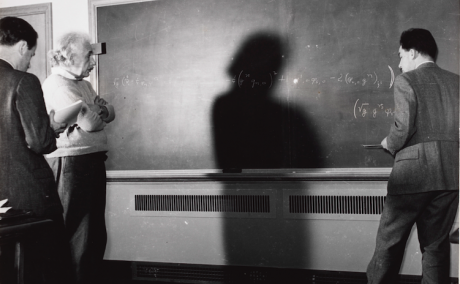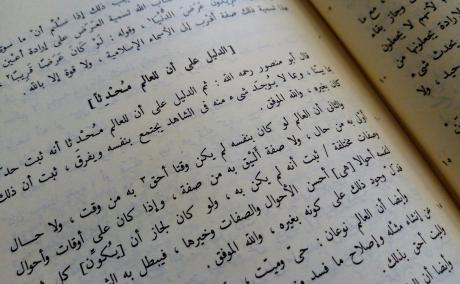The Max Planck Institute for the History of Science (MPIWG) has published its format “Research Topics” since 2008. Every six to eight weeks, researchers present individual contributions of one relevant aspect of their research or present a new research project. “Research Topics” appear on the home page of the Institute’s website and in a printed version available in the MPIWG’s entrance hall. The online version makes the latest research easily available and offers links to sources, databases, audiovisual material, publications, authors, and partner institutions. Published in German and English, the collection of Research Topics gives a representative picture of the ways in which research is conducted at the Institute. Copies can be ordered in brochure form through the Institute's press contact.

Feature Stories
Research Topics
Deputy Head, Communications Team
Stephanie Hood
+49 30 22667 242/315

An African History of Knowledge and Science beyond Academic Conventions
MORE
- Tilman Musch
- Dida Badi
- Emmanuel Ngue Um
- Yacouba Banhoro
- Sani Ibrahim
- Mahuma Abaliy Sédiké

Commoning Biomedicine: An Open Source Network for Oral Histories Online
MORE
- Alfred Freeborn
- Michael Winter
- Pascal Belouin
- Kim Pham
- Elizabeth Hughes
- Hanna Lucia Worliczek
- Steffen Hennicke
- Lara Keuck
- Max Planck Research Group (Biomedical Sciences)

Knowledge Systems and Collective Life: A New Approach to the Study of Science and Politics
MORE

The Social Side of a Scientific Breakthrough: Fritz Haber, Walther Nernst, and the Discovery of Ammonia Synthesis 1830–1930
MORE
- Benjamin Johnson
- Dept. I

Hortus Indicus Malabaricus: The Eurasian Life of a Seventeenth-Century “European” Botanical Classic
MORE

The Anthropocene’s Signal: What the Geology of the Present Beckons for the Future of Research
MORE
- Christoph Rosol
- Georg Schäfer
- Dept. I

Anthropocene Formations: Process Landscapes of Petromodernity
MORE
- Benjamin Steininger
- Alexander Klose
- Dept. I

A Vital Force? Exploring Agricultural Uses of Alchemy in Early Modern Europe, ca. 1550-1730
MORE

Dreams of Unification: The Role of Mathematics in Final Theory Programs
MORE

Practices of Validation in the Biomedical Sciences
MORE

Leonardo's Intellectual Cosmos
MORE
- Jürgen Renn
- Dept. I

The Networks of Early Quantum Theory
MORE
- Alexander Blum
- Christoph Lehner
- Jürgen Renn
- Max Planck Research Group (Final Theory Program)
- Dept. I

Learning by the Book: Manuals and Handbooks in the History of Science
MORE
- Angela N.H. Creager
- Mathias Grote
- Elaine Leong
- Dept. I

Knowing the Unobservable: Analogies and Analogical Reasoning in Premodern Islamic Theology
MORE
- Hannah Erlwein
- Max Planck Research Group (Premodern Sciences)

From the Renaissance of Einstein's General Theory of Relativity to the Confirmation of the Black Hole Paradigm
MORE
- Alexander Blum
- Luisa Bonolis
- Roberto Lalli
- Juan-Andres Leon Gomez
- Jürgen Renn
- Dept. I
- Max Planck Research Group (Final Theory Program)
- Max Planck Research Program (GMPG)

Local Gazetteers Research Tools (LoGaRT): A Digital Resource for Researching Chinese History
MORE
- Sean Wang
- Dept. III

The Mask—Arrayed: An Interdisciplinary Project on the Materiality of a Covid-19 Icon
MORE

China in the Global System of Science
MORE

Ecologizing the Korean Demilitarized Zone: Fields, Animals, and Science during the Cold War
MORE

The Evolution of Knowledge: Rethinking Science for the Anthropocene
MORE
- Jürgen Renn
- Dept. I
